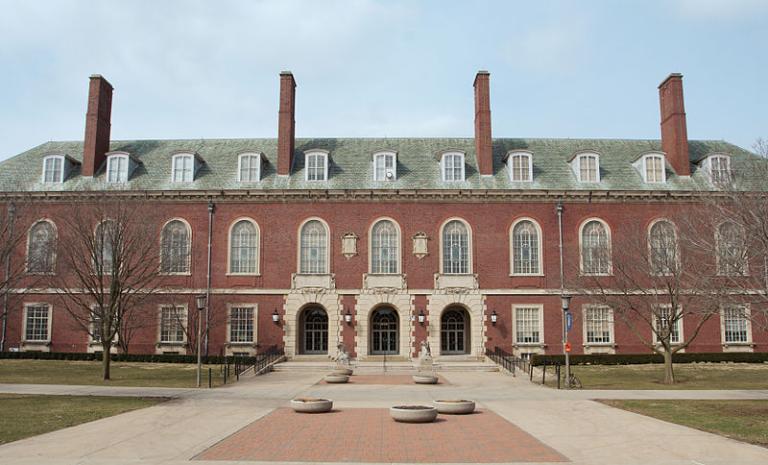![https://commons.wikimedia.org/wiki/File%3AHarvard_Yard%2C_Harvard_University.JPG; By Daderot. (Own work) [GFDL (http://www.gnu.org/copyleft/fdl.html) or CC-BY-SA-3.0 (http://creativecommons.org/licenses/by-sa/3.0/)], via Wikimedia Commons](https://wp-media.patheos.com/blogs/sites/533/2017/08/800px-Harvard_Yard_Harvard_University.jpg)
There are a number of articles out there about how the GOP is out to destroy graduate education. At Forbes, “The GOP Tax Plan Will Destroy Graduate Education.” At The Verge, “The Republican tax plan could financially devastate graduate students.” At Wired, “Grad Students Are Freaking Out About the GOP Tax Plan. They Should Be.”
Is the panic justified?
Imagine that you and I are both actuaries. I work for Tom’s Actuaries, Inc., and my employer offers me a tuition reimbursement benefit. Let’s say that, in fact, it’s an unlimited benefit, and I use it to get an MBA from the priciest school in town, tuition $70,000 per year. Afterwards, I quit my job for a more lucrative career as a Big Shot Executive. You, on the other hand, get no such reimbursement, and have to pay for any additional education on your own time.
Should that reimbursement be taxable? It would be unfair if it weren’t, right? And, in fact, currently, only about $5,000 of any such benefit is tax-free, and the GOP tax plan makes all if it taxable. They also bring into taxable income the benefits that employees of a university get when they send their kid to that university tuition-free. Universities aren’t happy about this, because it helps them hire workers at lower salaries than they otherwise would have to pay, but it seems fair to me to say that universities can do what they please but don’t get any special benefits from taxpayers in doing so.
But what about another type of tuition benefit for university employees? Yes, I’m talking about the no-good, very-unfair proposal in the GOP tax plan to tax as income any tuition waivers for grad students who are simultaneously university employees, and whose tuition waiver comes as a result of being an employee, not in the form of a no-strings-attached scholarship. At least, near as I can figure, that’s what’s going on. Here’s an article in the Washington Post that references the law in question, here’s the current code, and here’s (p. 98) the text in the new bill. It’s one of those sorts of laws that amends the old law in a way that makes it tricky to make sense of, but as far as I understand, what we’re talking about is that a tuition waiver which”represents payment for teaching, research, or other services by the student required as a condition for receiving the qualified scholarship or qualified tuition reduction” would become taxable.
Would this destroy graduate education, by requiring that those grad students pay outrageous sums of money in taxes?
Look, there are a couple ways the university can work around this.
They can give out tuition scholarships that are not contingent on employment at the university, and leave only the living stipends contingent on teaching or working in a supervising professor’s lab.
They can reduce graduate school tuition for everyone.
Or if they really want to ensure that other, less worthy, students pay the full bill, they can gross up the stipends to cover the cost of taxes.
They could potentially take a hybrid approach, with a 75% condition-free tuition waiver for worthy students.
It’s not that hard.
And it makes sense. Honestly, even if offered a full tuition waiver, paired with a conditional-upon-teaching living stipend, how many students would reject the latter? Heck, I suspect that even if they do, the university could hire a lecturer for the same wage, so there’s no harm done.
So dial back the panic, and take a deep breath, because the world isn’t coming to an end.
https://commons.wikimedia.org/wiki/File%3AHarvard_Yard%2C_Harvard_University.JPG; By Daderot. (Own work) [GFDL (http://www.gnu.org/copyleft/fdl.html) or CC-BY-SA-3.0 (http://creativecommons.org/licenses/by-sa/3.0/)], via Wikimedia Commons













